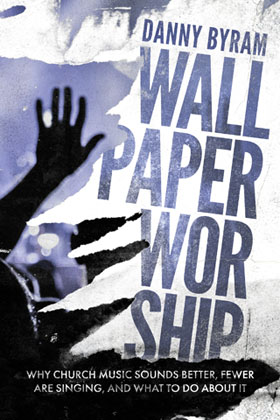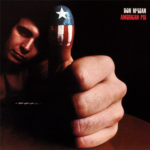
by Danny Byram | May 11, 2020 | christian worship, church, Church Leadership, Coronavirus, COVID19, Leadership, prayer, Surprise, Worship

On Sunday, January 5, Angela and I heard a new year’s sermon we thought was gutsy, thoughtful, realistic, and now, prophetic. This pastor told his congregation “This year may be the worst year of your life, filled with death, destruction, fear, and mayhem. To tell you ‘happy new year’ may be the most painful thing you could be told.” Yet he spoke of trust in God, that even what could turn out to be your worst year, could be your greatest. Personally, I don’t like sermons that point to victory without embracing hardship. This pastor minced no words. He was honest and mature.
Interesting how little we knew a few months ago, isn’t it? Needless to say, our plans for 2020 have come to a screeching halt. Like you, we are waiting, preparing, praying, and listening.
Last year, I read a book entitled “The Sin Of Certainty” by Peter Enns. In this challenging and often uncomfortable book, Enns says: “When we reach that point where things simply make no sense when our thinking about God and life no longer line up, when any sense of certainty is gone, and when we can find no reason to trust God but we still do, that is what trust looks like at its brightest.”
We see this “trusting-God-when-all-else-fails” throughout Bible stories and church history. (See my blog of March 29.) Yet as 21st century Americans, we shelter ourselves from experiencing hardships that make us “trust God when all else fails.” Sure, there are those who have experienced great personal tragedy: loss of a loved one, a failed business, loss of a job. Yet, so often the American dream and much of our Christian messages morph into figuring out how to put ourselves in a position where “all else fails” doesn’t happen.
Until now.
Never in our lifetime have we experienced anything on the global scale like we are witnessing through the COVID-19 pandemic, and the economic ruin that likely awaits us as we stagger through months of quarantine and sequestering. No one can predict what the results of this parenthetical time will be.
So, here are some questions we must ask ourselves: Will we trust God in sickness, in health, in death as well as in life? Or are we frustrated God is not producing what we want when we want it? Or worse, are we running scared?
As for me, I refuse to offer glib answers and clichés. I simply want to encourage myself and my family to walk the way others before us have walked through plagues, famines, and hardships in life and death. All we can do is trust the living and eternal triune God of the scriptures. In the end, we will see: trusting Him is enough.
I believe our 2020 plans are not for naught. In the meantime, we wait; we trust. We must.
“Come my people, enter into your rooms and close the door behind you. Hide for a little while until indignation runs its course.” Isaiah 26:20


by Danny Byram | Jan 16, 2019 | Church Leadership, Contemporary, Gratitude, Leadership, Liturgical, prayer, Worship, worshipmusic

Downloading tracks. Downloading charts. Finding the right song in the right key. Shooting videos for social media. Setting rehearsal time. Changing rehearsal time. Your drummer cancels on Friday. Lead female vocalist gets a throat infection. The smoke machine breaks down at stage left. Endless chase of the latest gear. Planning time with the team. Meeting with pastoral staff. Budget cuts. Time restraints within the service. Cut a song. Cut two. Your prepared remarks between songs were criticized in the staff meeting. Don’t say anything anymore – just do the music. You’re told: You’re not a pastor, just a musician.
Congregants don’t see these frustrations behind the scenes. They come and watch each week as you pull it off seamlessly like a pro. Yet you feel you have to hold it all inside. Keep it together. The pressure and frustration of what you once felt was your calling has become a job – or worse, a machine; predictable, produced, even pretentious. You are noticing you haven’t been alone in God’s presence for quite a while. You catch a prayer when you can. Your fuse is becoming shorter. Things that used to not bother you, bother you. That “sin that so easily besets you” emerges again. You confess and move on but it comes back anyway.
Sound familiar? Where is God in the worship grind? What is described above used to be exclusive to larger churches. Now, with social media expectations – a worship-music industry driving its images and products – and church growth formulas nipping at our heels – is it any wonder why churches of 200 or less are experiencing the grind as well?
Jeremiah 33:3 serves as a benchmark to busy activity, massive scheduling, goal setting, and strategic planning. “Call to me and I will answer you, and I will show you great and mighty things which you do not know.” (NASB). So, what is it we don’t know, that we need to know? Our gear is great, our media is moving, our following fantastic, our image immaculate, and our hearts are humble!
Consider the context of Jeremiah 33:3. For the first 32 chapters, God is using Jeremiah as His mouthpiece to speak prophetic words to the people of Israel and their leaders. Though the book is not laid out chronologically, it is apparent this far into the story that Jeremiah is still in need of knowing “great and mighty things” which he hasn’t yet discovered. God requires His “mouthpieces” to call to Him, and then listen.
Finding God in the worship grind will either happen by our own choice or by His choice. God will be found because we are awed by His sacredness – or – we are stopped in our tracks because the gears of the grinder have come to an abrupt halt. I have experienced both. I prefer the former not the latter. Believe me, you do too.
Recommended books: “Letters To The Church” – Francis Chan. “Abba’s Child” – Brennan Manning
Photo by Ben White on Unsplash












